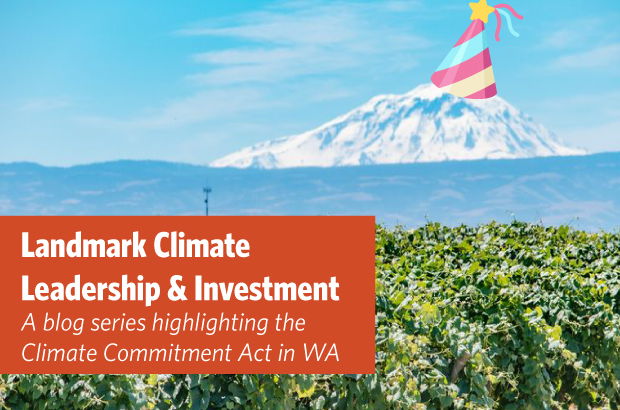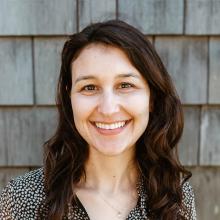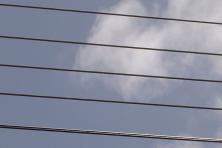Washington just raised $300 MILLION to reinvest in our communities in the first auction for allowances, with three more auctions coming this year! For the first time ever, our state will have billions of dollars available to invest in climate and clean energy solutions. There is a lot on the horizon to look forward to - unprecedented investments in a cleaner transportation system, cleaner homes and buildings, and cleaner air to breathe. It is truly an exciting time to live in Washington!
The Climate Commitment Act is a product of over a decade’s worth of work, continuously beating the drum on climate. We now have a first-in-the-nation cap-and-invest policy that actually centers justice and requires some of the steepest cuts in climate pollution in the country, and we are on the brink of seeing real benefits in our communities.
Following our deep dive into the ins and outs of the Climate Commitment Act (CCA), we’re reporting back for a quick touch on the results of Washington’s first auction, which showed huge potential for pollution reductions statewide with funds generated by some of the state’s top polluters. The price of an allowance settled at $48.50, generating a whopping $300 million for climate and clean energy investments from this auction alone.
Last month’s auction was just the first of many and offered a window into the immense promise of the CCA to fund programs that cut carbon from our biggest sources of climate pollution, including transportation, industry, and our homes and buildings. CCA funds will also play a pivotal role in improving air quality in overburdened communities, supporting Tribal Nations’ climate resilience and adaptation efforts, and bolstering natural infrastructure to increase resilience and sequestration capacity in our environment and our communities. At least 35% (with a goal of 40%) of CCA funds must also directly benefit overburdened communities. Working with the Environmental Justice Council, the Legislature has an incredible opportunity to reduce the disproportionate impacts of climate change and poor air quality in overburdened communities, while ensuring these communities experience the benefits of these new funds.
You can learn more about climate and clean energy investment opportunities here. You can also read a quick summary of nationwide media coverage, including WA Director Kelly Hall in the Washington Post, in our previous edition of ClimateCast.
What’s happening now?
Legislators are actively determining how CCA dollars should be spent in the next biennium and you can act now to let them know what’s important in reducing climate pollution and ensuring cleaner air for all Washingtonians.





